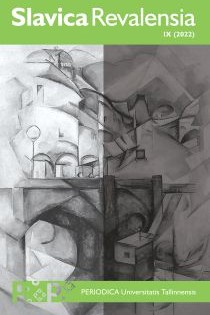Летние морозы, зимние купанья: Аспекты никольского дискурса в поэтике М. А. Булгакова [Summer Frosts, Winter Bathings: Aspects of St. Nicholas’ Discourse in Mikhail Bulgakov’s Poetics]
DOI:
https://doi.org/10.22601/SR.2022.09.07Keywords:
20th-Century Russian Literature, Mikhail Bulgakov (1991—1940), St. Nicholas of Mira (270—343), Mythopoetics, History of LiteratureAbstract
The article analyzes one of the aspects of the mythological layer of Bulgakov’s works — the system of motifs related to the image of St. Nicholas — Russia’s most venerated saint. Out of two incarnations of Nikolai Ugodnik, Bulgakov is primarily interested in Nikola Zimnii: there are virtually no allusions to Nikola Veshnii (Summer) in his prose (this is also true for the writings taking place in summer: “The Fatal Eggs,” Flight, The White Guard, etc.). References to St. Nicholas intertwine with allusions to two Russian Emperors, Nicholas I and Nicholas II (see: “The Khan Fire,” Alexander Pushkin, Batum, etc). As St. Nicholas is venerated as a patron saint of sea travelers, it is not surprising that in Bulgakov’s works the connotations revealed are supplemented by water motifs — with water appearing in various aggregate states (in the form of snow, for example).
Downloads
Published
Issue
Section
License
Copyright (c) 2022 Slavica Revalensia

This work is licensed under a Creative Commons Attribution-ShareAlike 4.0 International License.

